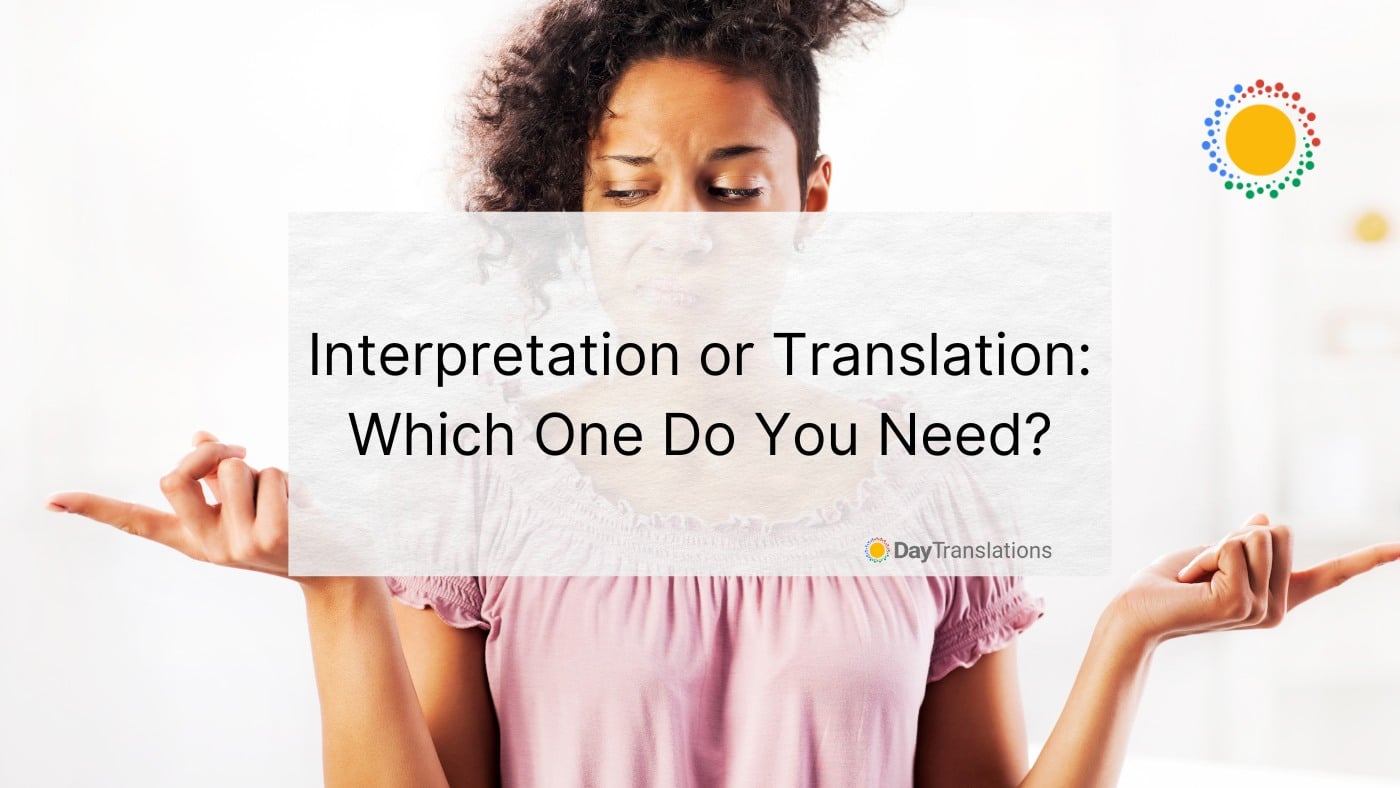If you’re going to be successful on a global scale, you need to communicate well with your international audience. The only way to do this in a meaningful way is to speak their language. With this in mind, your next move would be to seek interpretation or translation services. But do you know which one best suits your needs?
In this blog post, we’ll explore both Interpretation and Translation to help you determine which one is best for you.
Let’s dive in!
Interpretation of Spoken Communications
A major factor that sets Interpretation apart from Translation is that Interpretation takes place in real-time. It’s like spoken language translation. Interpretation is a service that happens live as original speech is being uttered. There are no scripts or any other form of referencing material. Everything is done purely out of skill and active knowledge of both the source language and the target language. The interpreter is also a native language expert.
As far as interpretation is concerned, translation does not occur word for word as one may think. Instead, interpretation gives a general concept of the material being communicated in a quick manner that is also culturally appropriate. In a nutshell, interpretation allows your message to make sense to your international audience.
For example, a scenario in which an interpreter would be needed is a meeting or workshop that is hosted by your company where the attendees speak a different language from you and your team. An interpreter here would be able to translate for you both in real-time while keeping everything in context and communication is exchanged quickly.
Translation of a Native Language to a Target Language
When it comes to translation, the biggest difference it has compared to interpretation is the source of the content of focus. Translation works with the written word instead of the spoken word. Translation services are carried out based on anything written that needs to be translated from the source language to a new language. Whether it be a website, a book, a magazine, or even a product label, as long as it’s written, then translation services are required.
Similar to the needs you’ll have for interpretation services, translation services still have a source language and a target language. A translator interprets written text. On the other hand, the translation process can become very technical and will require the expertise of a team as opposed to one person to get the job done.
Translation is also a long process which means it cannot be done instantly like interpretation. When seeking translation services ensure the translator is able to capture all the nuances relevant to the target country.
Weighing Up Whether You Need Interpretation or Translation
Here are a few major differences between Interpretation and translation that will further help you in deciding which service best suits your needs.
Layout
As mentioned earlier, a major difference between the two can be found in the way each service is formatted. Interpretation best suits a situation when translation is needed in real-time/ immediately. Translation on the other hand is based on written format.
Mode of Delivery – Spoken Language or Written Word?
Interpretation takes place on the spot if needed in immediate circumstances. When it comes to interpreting services it can be done in person, over the phone, or through video chat. Translation on the other hand goes at a much slower rate and can only be done when the material at hand is provided in written format. This, therefore, means that it takes a longer time and may even require the services of more than one person.
Level of Accuracy
By now you’d realize that interpretation comes with a lower level of accuracy than translation services. Where time would be on a translator’s side, interpreters do not have that luxury. This, however, doesn’t mean that interpreters don’t strive for perfection and accuracy in what they are doing. Once the words are spoken it’s on to the next one. Translators can review and rewrite as many times as they may need.
Cultural Appropriation
This one is neither a comparison nor a contrasting view. It is instead something both professional interpreters and translators are faced with in their profession that must constantly seek to adapt to. Culturally specific references will always be present in spoken or written translation. Whether there’s a need to include metaphors or idioms that are understood in the target language, both interpreters and translators must ensure that the target audience understands in a fulsome way, the intended message of the source language. Interpreters must capture the tone and all other contexts of the message in record time. Translators must do the same but they have the advantage of time on their side.
Wrapping Up
Are you more certain of which service you’ll be needing next? or do you think that both interpretations and translation services serve you but in different contexts and for different events? Either way, Day Translations and Day Interpreting are here and ready to provide all your translation and interpretation needs.
Our expert teams are available at your service 24/7. They are highly trained individuals who are passionate about what they do and the skills they bring to the table. Check us out today!














Sorry, the comment form is closed at this time.